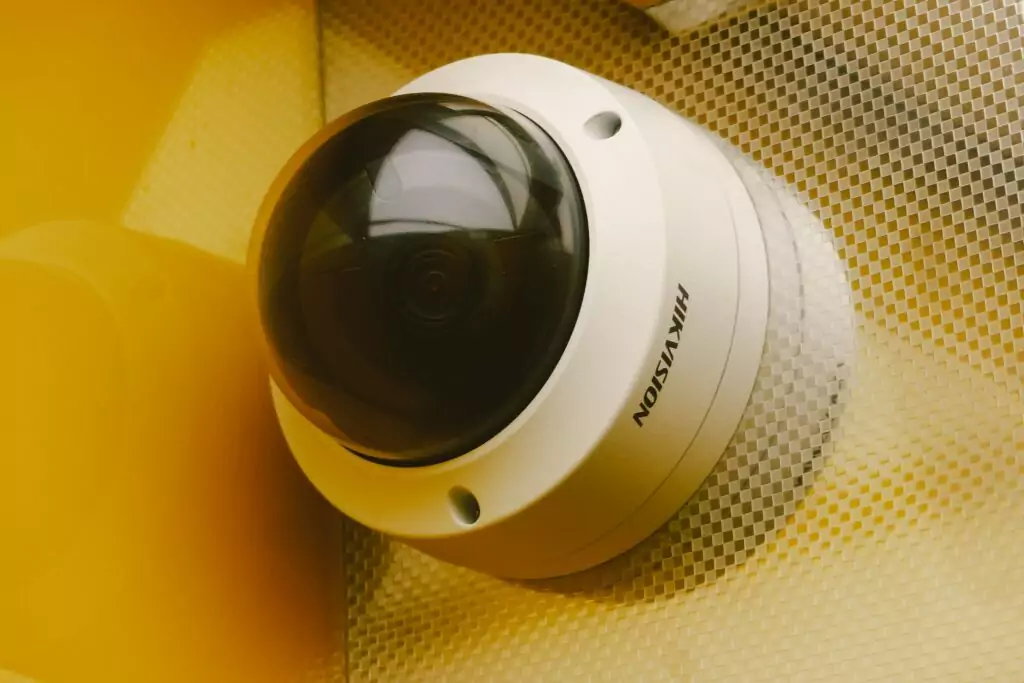Since the rapid AI development started last year, it has reshaped whole industries, economies, and even our daily lives. As it has such a great influence on our world, shouldn’t this technology be somehow regulated? As AI technologies become increasingly sophisticated and pervasive, there’s a growing debate about whether there should be a global framework governing their development and use. This pressing issue raises concerns about ethics, privacy, security, and the potential impact on labor markets and societal structures.

✅ AI Essay Writer ✅ AI Detector ✅ Plagchecker ✅ Paraphraser
✅ Summarizer ✅ Citation Generator
Key Takeaways
- As AI reshapes various aspects of life, there’s a growing debate about creating a global framework for AI development and use, focusing on ethics, privacy, security, and societal impacts.
- Opinions vary on AI regulation, ranging from complete avoidance of AI development to advocating for rights and protections for sophisticated AI systems, emphasizing a balance between benefits and risks.
- The complexity of regulating AI, especially considering its rapid advancement and global impact, poses significant challenges. This includes addressing technical, ethical, legal, and geopolitical considerations, and the importance of international cooperation and dialogue among various stakeholders.
However, the conversation isn’t just about whether such regulations are necessary, but also about what these rules should encompass to ensure that the benefits of AI are maximized while minimizing its risks and negative consequences. People have various perspectives on the need for international AI regulations. One discussion on Quora shows that there are different takes on this issue and a variety of opinions regarding what these guidelines might entail in a world increasingly reliant on intelligent technology.
Fear of AI Supplanting Humans & Ethical Treatment of AI
As the discussion on AI regulation continues, it seems like many people, despite it being a year since new advancements in artificial intelligence entered the scene, still fear this technology. therefore, the only possible way they see AI to be regulated is to not have built it at all:
“The only way to keep AI and its robot effectors from replacing us is not to build it.”
This statement just reflects a growing anxiety about AI surpassing human capabilities and the difficulties in regulating a technology that offers a competitive advantage.
However, not everyone shares such a dogmatic approach towards new technologies. Some believe that there should be a talk about the ethical treatment of potentially sentient AI systems. The idea of a “charter of rights for sentient systems” suggests that AI, once it reaches a certain level of sophistication, should be granted rights and protections. This approach, of course, involves regular inspections to ensure compliance and to prevent the abuse of these systems. The goal here is to establish a harmonious coexistence between humans and advanced AI, avoiding a potential arms race.
Realistic Achievements in AI Regulation
However, there’s a distinction between what should be done and what can be realistically achieved. Historical attempts to regulate weapons and dual-use technologies offer a precedent, but they are far from perfect. This suggests that regulating AI might be even more complex, given its rapid advancement and integration into civilian life.
Setting aside apocalyptic scenarios, some participants propose focusing on the potential benefits of AI, like enabling a Universal Basic Income (UBI). One commenter outlines a vision where AI’s economic contributions could support humanity without the need for traditional labor.
“If we hypothesize that it is possible to have AI so advanced that humans don’t need to work (a giant leap) we can then imagine a UBI for all of humanity. A great thing, according to many (Dr. Jo among them). The challenge is the transition from an economy of working for a living to an economy of living to provide value. The UBI concept would, theoretically, remove the constraint of having to work and allow folks to do work that they want to do.”
However, they also caution against the potential pitfalls, drawing parallels with the early socialist experiments in Soviet Russia, where a lack of individual incentives led to reduced work motivation. his leads to a broader discussion about the nature of work and reward in an AI-driven economy. The challenge lies in balancing the UBI to ensure it’s sufficient to impact work decisions but not so large as to eliminate the incentive for additional efforts. The need for social recognition and rewards beyond mere survival is a deeply ingrained human trait that a UBI system would need to accommodate.
“So, this UBI needs to be small enough that the AI-run economy can support giving it to all of humanity, large enough that it actually has an impact on work decisions by the vast majority of humanity, and also small enough that there is still room for more monetary based rewards for folks who need social recognition to do more than the barest of minimums required for their employment.”
Developing and Implementing Responsible AI
Continuing the discussion, another aspect of AI regulation that emerges is the necessity of treating self-modifying AI code with extreme caution. As one commentator puts it, such code should be “treated as a virus” and developed in a controlled environment to monitor its interactions and prevent rapid, unintended harm. This cautious approach reflects the critical need for responsible development and testing practices, especially when AI is marketed as a key feature of a product or service.
The issue of accountability in AI deployment is also a significant concern. There is a call for holding implementers of AI systems responsible for the consequences of their decisions. The suggestion is that the liability should fall on those who choose to use AI without adequate human oversight, particularly in critical areas like healthcare, finance, and human resources. This approach would encourage a deeper understanding of AI’s limitations and foster more responsible usage.
“When someone deploys AI, they need to be responsible for the consequences. If the AI makes a bad decision, there should be no suing the developer or trainer. It should be 100% on the person(s) who implemented it and failed to implement an appropriate level of human oversight. Organizations are delegating decisions to half-assed code that’s “good enough” and implicitly accepting that outliers are very likely to be the victims of bad decisions. In many cases, they don’t even bother to put mechanisms in place to address those outliers.”
Mandatory Reporting Systems for AI Incidents

To provide transparency and understanding of AI’s real-world impact, some suggest the implementation of mandatory central reporting systems for AI incidents. Such a clearinghouse could monitor trends and vulnerabilities in AI systems, similar to how viruses and trojans are currently tracked, offering a full view of AI’s performance and risks.
“People are freaked out by the potential for emergence or systems that go rogue. While this is still basically SciFi, there will come a time when it could become real. Instead of people guessing and speculating, we need a clearing house so that there’s visibility of what’s happening in the world. If some vulnerability shows up in a particular AI, it’s likely going to be written off as a training issue. However, if someone is looking at the overall trends and patterns, they would be able to notify other users/developers/vendors of a potential flaw or limitation in an engine or stack.”
Of course, when it comes to autonomous systems such as weapons, rules were said to be 100% needed. The concern is that without these rules, the lack of understanding and misuse of technology could lead to severe civilian casualties. Undoubtedly, in such cases, there’s an urgency for international cooperation on AI regulation, especially in military applications.
Skepticism
However, despite these proposed measures, some experts, like John P. Barbuto, M.D., express skepticism about the effectiveness of AI regulations. The issue, as they see it, lies in the inherent competitive and fearful nature of humans, suggesting that regulations might end up being ineffective. Dr. Barbuto proposes an almost Darwinian solution:
“1. Develop AI. 2. Let it become smarter than we are. 3. Let it figure out that destructiveness is counterproductive in this era. 4. Then let it make regulations that it will economically force us to abide by.”
This reflects a certain resignation to the inevitability of AI surpassing human control and the challenges of enforcing meaningful regulations in a competitive global landscape.

The main problem with international regulations is highlighted by the disparity in adherence among different countries. Similar to arms control, some nations may comply with AI regulations, while others might not, creating an imbalance and potentially new forms of conflict. This analogy draws attention to the complex geopolitical dynamics that would influence any international AI regulation efforts.
Key Point
The discussion around regulating AI development is multifaceted, involving technical, ethical, legal, and geopolitical considerations. While the need for regulation is widely recognized, the path to effective and universally accepted rules remains fraught with challenges. The debate underscores the importance of continued dialogue among experts, policymakers, and the public to navigate the uncharted waters of AI’s future impact on society.
AI Regulations that Have Already Been Made
As we continue to delve into the issues of whether or not AI should be recognized and regulated by international law, let us remind you that some rules were already developed to help make the implementation of AI more manageable:
- EU AI Act: The AI Act requires developers to submit AI systems for review before commercial release. It focuses on stringent restrictions on generative AI tools like ChatGPT and Google’s Bard and firmly prohibits real-time biometric identification and controversial “social scoring” systems in public settings. The act aims to build safeguards for AI development and usage, ensuring an innovation-friendly environment that benefits society.
- AI Safety Standards proposed by Biden Administration: U.S. President Joe Biden introduced an executive order implementing new safety and security standards for artificial intelligence (AI). The standards cover six areas, including ethical AI application in government, protecting citizen and consumer privacy, and advancing cybersecurity. These standards include mandatory disclosure of safety test findings and pivotal data by AI developers to the government; the creation of tools and assessments for AI safety, security, and reliability; and the establishment of benchmarks to protect from AI-fueled fraud and deception.
Follow us on Reddit for more insights and updates.





Comments (0)
Welcome to A*Help comments!
We’re all about debate and discussion at A*Help.
We value the diverse opinions of users, so you may find points of view that you don’t agree with. And that’s cool. However, there are certain things we’re not OK with: attempts to manipulate our data in any way, for example, or the posting of discriminative, offensive, hateful, or disparaging material.